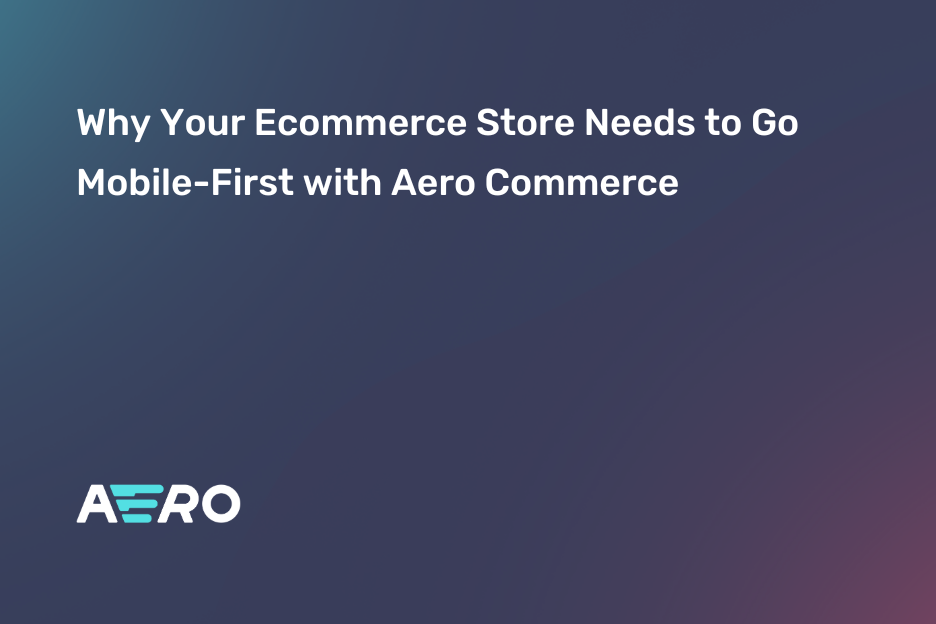Ecommerce websites thrive off their knowledge on how to evolve to best appeal to customers. Their main focus is to improve conversions, increase traffic and keep users on their websites for longer. However, none of this can come about if your SEO isn’t in tip top shape.
Wondering how to do SEO for ecommerce? Here are some handy tips to help you hit the ground running.
According to Aero partner agency Surge Marketing Solutions, SEO is paramount for organic traffic success - this also rings true for ecommerce websites, especially if their focus is to appear on page results as being the most up-to-date website for a specific search.
SEO helps to drive brand awareness to the skies — the more you optimise your content, the more Google will want to improve the likelihood of specific pages being ranked higher on Search Engine Results Pages (SERPs).
Ecommerce websites are always on the hunt to improve their ROI, which is where SEO comes into play. Since search engine optimization is based on organic traffic, there are no costs associated with it, which allows you to focus less on overheads and more on overall optimisation across the board.
With millions of people already using Google to search for products (e.g. ‘black silk dress’), optimising your pages effectively is essential.
An ecommerce SEO strategy is vital as it allows you to effectively structure your website. SEO includes backlinks, content and technical factors, which should all be taken into consideration. A successful ecommerce website would include local SEO, link building (internal and external), content marketing, on-page and off-page SEO as well as continuous keyword research. Thus, with ecommerce introducing SEO elements, all of the above must gradually be worked upon.
What’s more is that a SEMrush study found that after analysing 13 ecommerce sites, the majority actually dominated organic search and 80% of their traffic was through SEO. With ecommerce, writing relevant product descriptions, using appealing photos and having positive customer reviews will help customers in their purchasing phase. From an SEO perspective, this allows a website to be user friendly, giving customers all the information they need to decide on their purchase.
Optimising your website for SEO means going back to the fundamentals*. The first, essential step is research. You can’t make SEO work for you unless you know what your target audience is searching for.
Therefore, you’ll need to do your keyword research.
Keyword Research
You need to explore which keywords will help people find your homepage and your product pages.
The three factors you’ll need to consider are:
Relevancy
Search volume, and
Ranking.
Basically, you don’t want to settle on keywords that are too broad or too competitive.
Too broad a keyword, then people won't find what they're looking for when they click through to your site. If your keywords rank highly in searches, then the sheer amount of competition will prevent you from achieving a better ranking.
This is all about being strategic — if there are niches you can appeal to then your SEO should reflect this. Also, consider the keywords you can use on blog topics. We'll come to blogs next.
Blogging for SEO
SEO for ecommerce websites is also about enhancing the customer experience. By supporting your site with interesting and readable blog content, you can answer the questions of your potential customers and add value for them. For this, focus on long-tail keywords — these are the phrases people key into Google when they’re looking for something.
A word of caution here; don’t be tempted to simply cram lots of keywords into your content.
For one, Google doesn’t like it, and may well penalise you for it. But most importantly, it’s not going to read well for your website visitors. This is a critical consideration.
Ultimately, you’re not optimising your ecommerce site for Google, you’re doing it for your customers. Always structure your site pages and content with your customers in mind.
Also, consider blogging a commitment. It needs to be frequent, but it should also stay relevant to your customers.
Map out the kind of content you want your blogs to focus on, with the relevant long-tail keywords, and create a content calendar to help you schedule your content.
Aero and SEO
We know how important SEO is to the success of your online store. That’s why we’ve made it straightforward to optimise your site for SEO through the Aero platform.
Aero’s allows you to create custom metatitles, descriptions and URLs for your products and pages, all of which helps search engines get your site in front of customers. If you want to launch a blog, Aero’s purpose-built modules help you share valuable content which pushes you up the SERPs.
Aero: built for retailers, optimised for SEO.
For further insights into the world of ecommerce, follow Aero on LinkedIn.
.png)

